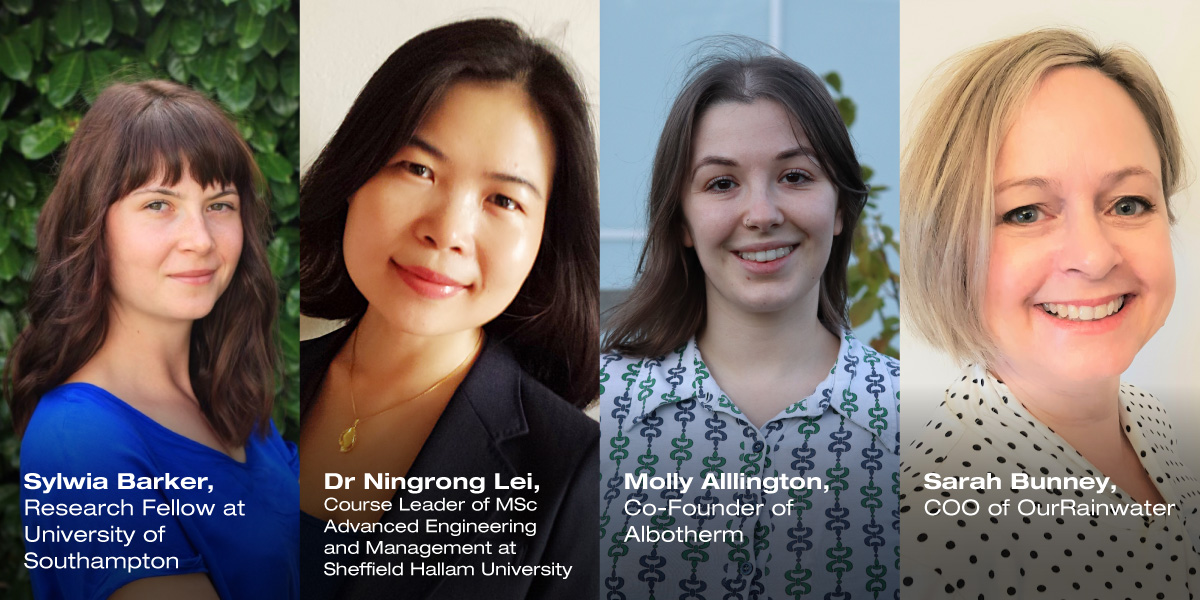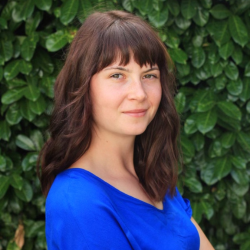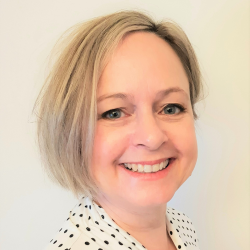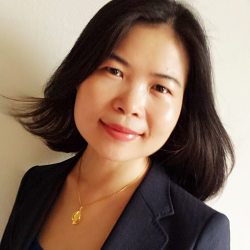SEARCH
Enter your search term below:
Close
Enter your search term below:

WORLD LEADING BUSINESS SUPPORT

The Framework states its commitment to translating the benefits of being a science and technology superpower into material benefits for the British people.
Alongside our university partners, SETsquared’s mission is to help transform scientific research, knowledge, and ideas into thriving businesses to benefit the regions we serve and the UK as a whole.
Through the Innovate UK-funded Innovation to Commercialisation of University Research (ICURe) Programme, for example, we have supported teams led by university early-career researchers to determine whether there is a market for products or services that utilise their research, science, or technology. 500+ teams have taken part in the nationwide programme (also delivered by North by Northwest and Midlands ICURe), which has led to the creation of 200+ new companies and 650 jobs.
International Women’s Day (8th March) gives us the ideal opportunity to shine a spotlight on some of the talented female researchers turned founders who have been supported through ICURe and are creating the innovations which will help us achieve Net Zero and transform healthcare. Their technologies have the potential to have a significant societal and economic impact, so we caught up with them to find out more and get their take on this year’s International Women’s Day theme: Embracing Equity.
 Molly Allington is co-founder of all-female-led Albotherm which is developing passive cooling technologies to reduce energy usage in agricultural and commercial buildings. The technology is a coating that transitions from transparent to white as it heats up, which reflects heat away and becomes transparent again once cool to allow for natural warming through sunlight.
Molly Allington is co-founder of all-female-led Albotherm which is developing passive cooling technologies to reduce energy usage in agricultural and commercial buildings. The technology is a coating that transitions from transparent to white as it heats up, which reflects heat away and becomes transparent again once cool to allow for natural warming through sunlight.
“Air conditioning currently accounts for 10% of global electricity. Our technology has the potential to reduce carbon emissions by 150 megatonnes annually by significantly reducing the need for air conditioning, which would reduce global electricity by 3%.”
“I went straight from my Chemistry undergraduate degree to working on Albotherm, as my first job. I knew the technology side, but there was a huge learning curve on the commercial side, which I had to do on the go.”
“It would be great to see more female CEOs. I think one of the main barriers is funding. There are big differences in the way investors approach all-male or all-female-led companies. Often, they ask women more risk-based questions and men more ambition-based ones, which impacts the amount of investment raised for women as we are starting on the back foot. The landscape is changing, though, as there are more female investors, which will result in more equity being invested in female-led businesses. As for lack of ambition – that’s definitely not a barrier for women.”
“My co-founder and I are new to this world, with this being our first business. That can really add to the lack of confidence you can feel negotiating a deal with someone far more experienced in the industry. But I try to keep imposter syndrome at bay by keeping in mind that I’ve jointly developed this technology, so I have every right to be here.”
 Sylwia Barker is a research fellow at the University of Southampton and is developing microVita – a biotech solution for drug testing and evaluation using living tissues.
Sylwia Barker is a research fellow at the University of Southampton and is developing microVita – a biotech solution for drug testing and evaluation using living tissues.
“It can typically take over $1bn and 10 years of research to bring a single drug to market. This is largely due to a lack of reliable data, especially at the early stage of the drug development process. microVita aims to solve this issue by providing a comprehensive biotech solution that delivers high-value data from living tissue samples. Our technology simulates a physiological environment where we keep that tissue alive and obtain quantitative metabolic data. This data can lead to the early identification of disease biomarkers and result in more effective decision-making and improved outcomes in the preclinical stage of drug discovery.”
“Equity, for me, means freedom to express who I am and having the ability to live and fulfil my dreams.”
“I’ve been incredibly lucky throughout my life to always have some amazing support behind me. My mum has always been my biggest supporter, and during my Chemistry degree at the University of Southampton, I worked with some wonderful, supportive teachers. That’s what’s given me the confidence to push forwards with my scientific research.”
“I know not everyone is as lucky as me, and if you don’t have this support, I would recommend surrounding yourself with like-minded people who can help you reach your potential.”
“I feel really fortunate to be able to pursue my passion because I’ve always been driven and curious. I hope to help other women fulfil their dreams as well.”
 Sarah Bunney is the COO of OurRainwater, an organisation that provides water companies, local authorities and communities with a SAAS platform to facilitate the adoption of rainwater management systems.
Sarah Bunney is the COO of OurRainwater, an organisation that provides water companies, local authorities and communities with a SAAS platform to facilitate the adoption of rainwater management systems.
“Our climate is changing, and as global temperatures rise, extreme weather events such as drought, heatwaves and flooding are expected to become more frequent. The uncertainty, scale and pace of climate change is challenging our ability to adapt and manage water resources effectively. We only have to look at the past summer and the prolonged period of hot dry weather that we experienced, to understand how important it is that we effectively prepare for extreme weather events such as drought.”
“I must be honest: the transition from academia to founder was quite daunting at first. My academic research has provided me with a deep understanding of the challenges that we face now and, in the future, and becoming a founder has provided me with another way to communicate these important messages about climate change. It has also allowed me to be part of the solution in a more practical and community-focussed way.”
“To me, embracing equity is about creating a world where everyone has equal opportunities and can thrive.”
“However, I must say that this has been an incredible journey and I would encourage other women thinking about commercialising their research to embrace it! Yes, it is a journey of learning new skills, but it is an incredible journey at the same time. I have learned so much about myself throughout this process and I have gained so much more confidence in my own abilities.”
 Dr Ningrong Lei from Sheffield Hallam University is developing a real-time heart monitoring service to detect early warning signs in those at risk of stroke. The platform uses wearable technology and deep learning to identify and monitor atrial fibrillation.
Dr Ningrong Lei from Sheffield Hallam University is developing a real-time heart monitoring service to detect early warning signs in those at risk of stroke. The platform uses wearable technology and deep learning to identify and monitor atrial fibrillation.
“A stroke incident is five times higher in people who have atrial fibrillation (AF), which is a treatable heart rhythm irregularity that affects over 34 million people worldwide. Every three minutes, 15 people will suffer an AF-related stroke, of these five will die and another five will be left permanently disabled.
“Improving AF detection rate by just 6% could prevent up to 49,000 strokes within three years in England alone – saving the NHS £1.25 billion.”
“It’s an exciting time for digital health research, and I’m passionate about translating our research innovation into a commercially successful service benefiting wider society.”
“I think if you truly believe your fundamental research has the potential to bring a positive impact to society then commercialisation is a viable route. It’s critical to identify a clear market need and your unique value proposition. It’s very difficult to get people to believe in your ideas, particularly at an early stage. This is especially true of funders. So it’s important to have an exciting story and a convincing case about your product or service. Research commercialisation takes a lot of time, patience and of course, hard work but it’s very rewarding at the same time.
“I think it’s important for us to create a society where everyone has equal opportunities. I have been lucky and have never felt disadvantaged or discouraged to be successful in any area I’ve set my mind to. I would encourage all female engineers and scientists to be bold and not think because they’re women, they can’t do things. If evidence shows that your idea will work – build the right team and just do it!”
If you want to take the first steps towards exploring commercialisation pathways for your research, ICURe Discover is currently open for applications. Funded by Innovate UK and delivered by SETsquared, it is a dynamic online programme for students, researchers, and academics to begin exploring commercial options for their research.
In just four days of learning, it will introduce lean start-up methodology and Strategyzer’s Business Model Canvas and value proposition tools to prepare researchers for the process of commercialisation. Find out more
Get all the fresh insights first! Stay up-to-date with all the
latest investment news, blogs and all things SETsquared.
Close
Close